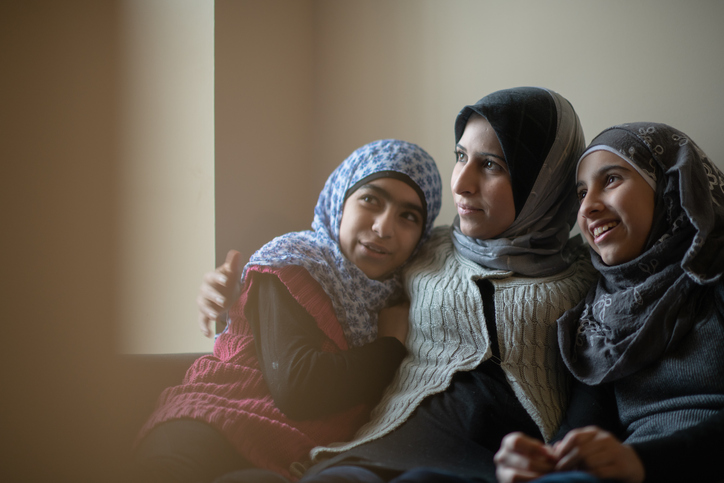


Background
It has been the policy of
the United States to provide asylum and humanitarian assistance to persons
subjected to persecution in their homelands. This humanitarian resettlement
assistance is provided through the states but is funded through the federal
Office of Refugee Resettlement. Approximately 50,000-80,000
refugees resettle in the United States each year with California historically
receiving the largest number of new refugee arrivals. Newly
arriving refugees in California are the most ethnically diverse groups in the
nation originating from more than 85 different countries and speaking more than
80 different languages at any given year.
Who We Serve
Refugees are individuals who have been granted special
immigration status ("refugee") by the U.S. Citizenship and Immigration Services
(USCIS) while outside the U.S. These refugees are unable to return to their
country of origin because of persecution or a well-founded fear of persecution
on account of race, religion, nationality, membership in a particular social
group, or political opinion. The definition for refugee also includes
individuals who have been subject to or have a well-founded fear of being
subject to coercive population control methods such as forced abortion or
involuntary sterilization.
Asylees are individuals who are in the U.S., either legally
or without documents, and fear that they will be persecuted if they return to
their home country. To become an asylee, the person must go through an
immigration hearing or court process and granted asylum by USCIS.
Cuban and Haitian Entrants are nationals of Cuba and Haiti
who are in the U.S. and may be determined to be unable to return to their
respective countries, and granted a special status by USCIS.
Certified Human Trafficking Victims are victims of
modern-day slavery, which include young children, teenagers, men, and women.
Victims of human trafficking are subjected to force, fraud, or coercion, for the
purpose of sexual exploitation or forced labor. The Trafficking Victims
Protection Act of 2000 made adult victims of severe forms of trafficking who
have been certified by the U.S. Department of Health and Human Services eligible
for benefits and services to the same extent as refugees. The Trafficking
Victims Protection Reauthorization Act of 2003 made certain family members of
trafficking victims also eligible for benefits and services to the same extent
as refugees. Victims of severe forms of trafficking who are under 18 years of
age are also eligible for benefits to the same extent as refugees but do not
need to be certified.
Certain Amerasians from Vietnam who are admitted to the U.S.
as immigrants pursuant to Section 584 of the Foreign Operations, Export
Financing, and Related Programs Appropriations Act, 1988 as amended. These
immigrants are children born in Vietnam between January 1, 1962, and before
January 1, 1976, who were fathered by an American citizen.
Afghan and Iraqi Special Immigrants are displaced persons
from Afghanistan and Iraq admitted to the U.S. with Special Immigrant Visas
(SIVs). These Afghans and Iraqis were employed by or assisted the U.S. Armed
Forces with translation or interpreter services.
Afghan Humanitarian Parolees are nationals of Afghanistan who have been granted temporary lawful presence in the U.S. Parolees must apply for another form of immigration relief such as asylum before their parole expires to remain in the U.S. legally.
Program Description
The Federal Refugee Act of 1980 created the Office of Refugee
Resettlement (ORR) to fund and coordinate post-arrival health assessments,
time-limited medical services and cash assistance, and other benefits to newly
arrived refugees, asylees, and other eligible entrants to help them achieve
economic self-sufficiency as quickly as possible after their arrival to the
United States. In California, the Office of Refugee Health (ORH)
coordinates the following programs supported with ORR funds:
Refugee Health Assessment Program (RHAP)
Impacted
local health jurisdictions provide culturally and linguistically-appropriate
comprehensive health assessments to newly arrived refugees, asylees,
federally-certified victims of severe forms of trafficking, and other eligible
entrants. The RHAP focuses on screening of and prevention of
communicable diseases; early identification and diagnosis of chronic diseases
and other important conditions; assessment of immunization status for children
and adults; mental health screening; and referral to health providers for
further medical evaluation, treatment, and
follow-up.
In coordination with the Department of Health Care
Services, Medi-Cal Eligibility Division, the ORH provides time-limited RMA-based
Medi-Cal benefits to refugees, asylees, federally-certified victims of human
trafficking, and other entrants who are not eligible to receive Title XIX
Medi-Cal benefits. This benefit is available only for the first
eight months from the date admitted to the U.S. or from the date of
certification.